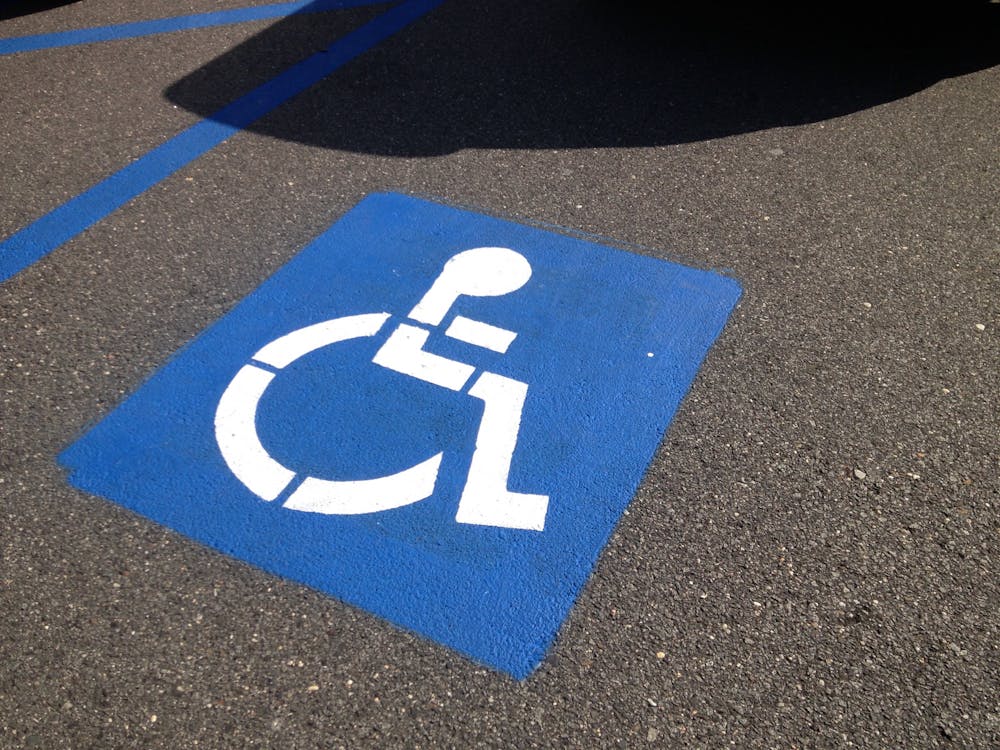By Amber Nodes
Staff Writer
Marceline Hale is often stuck in lounges around campus, unable to focus on schoolwork due to her disabilities. She struggles with walking back to her dorm from class and is sometimes stranded on campus because of exhaustion.
“I have to tell my teachers this is the best I can do at the moment, and I’m stuck halfway across campus and can’t make it home,” said Hale, a freshman political science major and an affiliate of the Accessibility Resource Center.
The College’s Accessibility Resource Center (ARC) gives students with disabilities access to a broad range of accommodations for mental and physical disabilities, such as time extensions on assignments, housing accommodations and “other adaptations or modifications that enable a student to enjoy equal access to the benefits and privileges of the college’s programs, services and activities.”
ARC does not provide personal devices, like wheelchairs, or “accommodations that lower or change classroom standards” according to the accommodations section of their website.
Hale said that being an ARC affiliate has been an overall good experience. She goes to the center for mental and physical health reasons. She gets extra time on work and assignments, preferential seating and clarifications on directions because she has autism, chronic pain and low energy.
The ARC website outlines how to apply for accommodations on the accommodation process page. Students first apply for an account in their system and upload proof that they need accommodation, such as a letter from a physician.
“We are flexible when it comes to documentation,” said Meghan Sellet, the director of ARC. “We do not want processes to override the need for support; we want to meet students where they are.”
Dixita Malatesta, a Learning Specialist for the Lions Plus division of ARC, said that often students are unaware that there is an office at the College that handles accessibility, and they are relieved when they find out they can get accommodations at the college level.
“The mission of ARC is to be able to help students through accommodations and whatever is mandated by the ADA, in terms of providing students with the necessary support to be successful and to remove barriers,” Malatesta said.
Because of the number of students needing accommodations, Malatesta said that ARC could use more staff members to improve the center’s ability to help students.
Sellet noted that the College’s smaller size helps with fostering accessibility.
“Prior to coming to TCNJ, I worked at some pretty huge schools,” Sellet explained. “The College is pretty compact and flat, and class sizes are also on the smaller side. There's no flying under the radar at the College, which can be critical in efficiently and effectively supporting students with disabilities.”
Despite the College’s smaller size, however, Hale said she struggles with the physicality required to navigate campus.
“TCNJ has a beautiful campus,” she acknowledged, “however, I don’t think getting around campus is the easiest. I think what I need help with is my physical limitations,” adding she would like to see an expansion of bike racks and options for hybrid classrooms.
According to Malatesta, the construction currently being done on campus has created a challenge in navigating the campus. When the construction is done, the issue should resolve itself, she said.
“Physical access and accessibility is definitely something we are closely monitoring, especially in terms of the different changes in campus construction going on,” Malatesta explained. “Some of our students have found that difficult to navigate.”
Hale acknowledged that it can be difficult being disabled on campus, although she does not believe the issues are from ARC, professors or other students. She says that she had a hard time advocating for herself after years of feeling unsupported in her previous institutions.
“It's not as easy being confident in yourself,” Hale said. “Oftentimes, you lack the ability to know what the possibilities are.”







